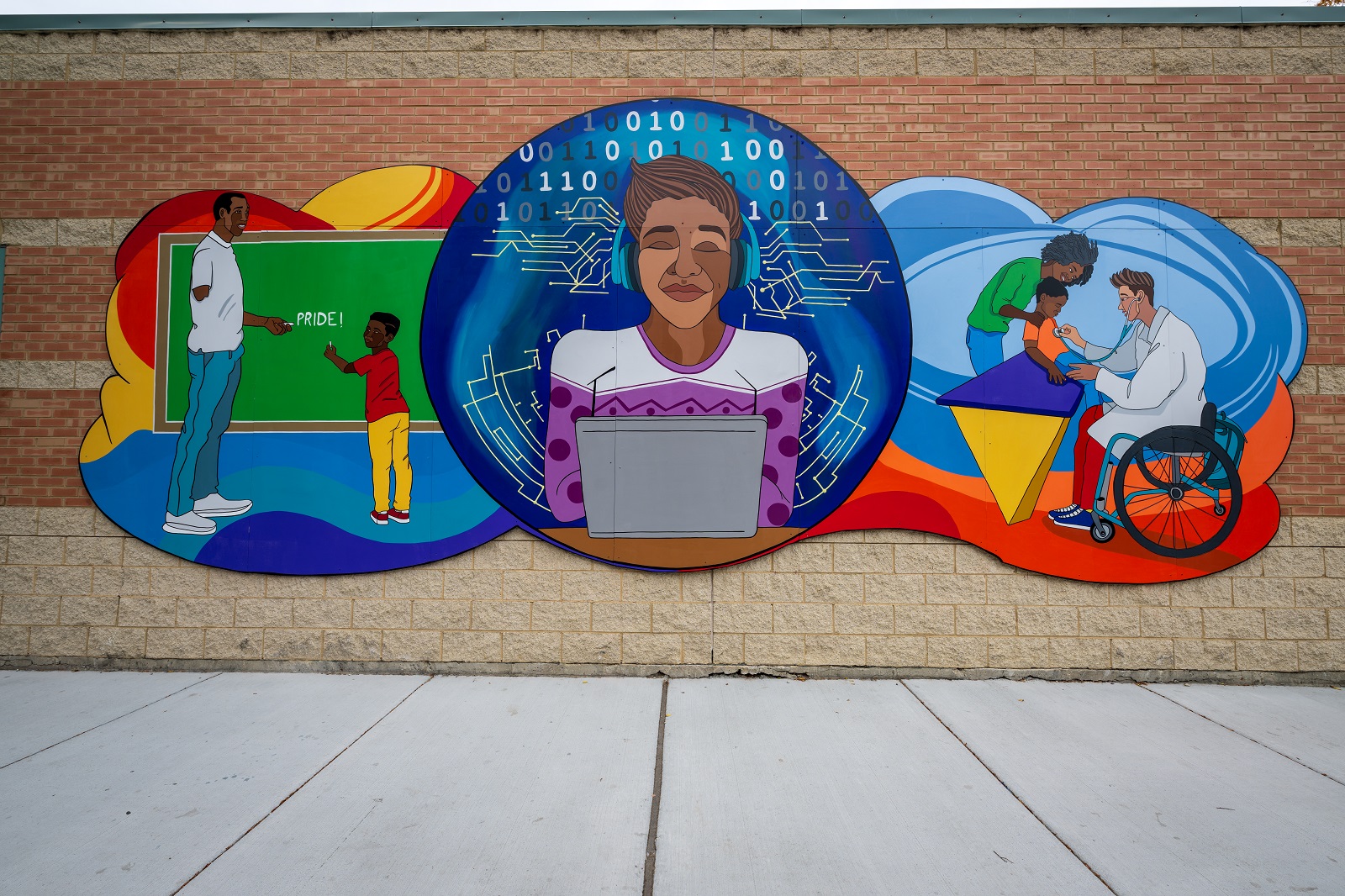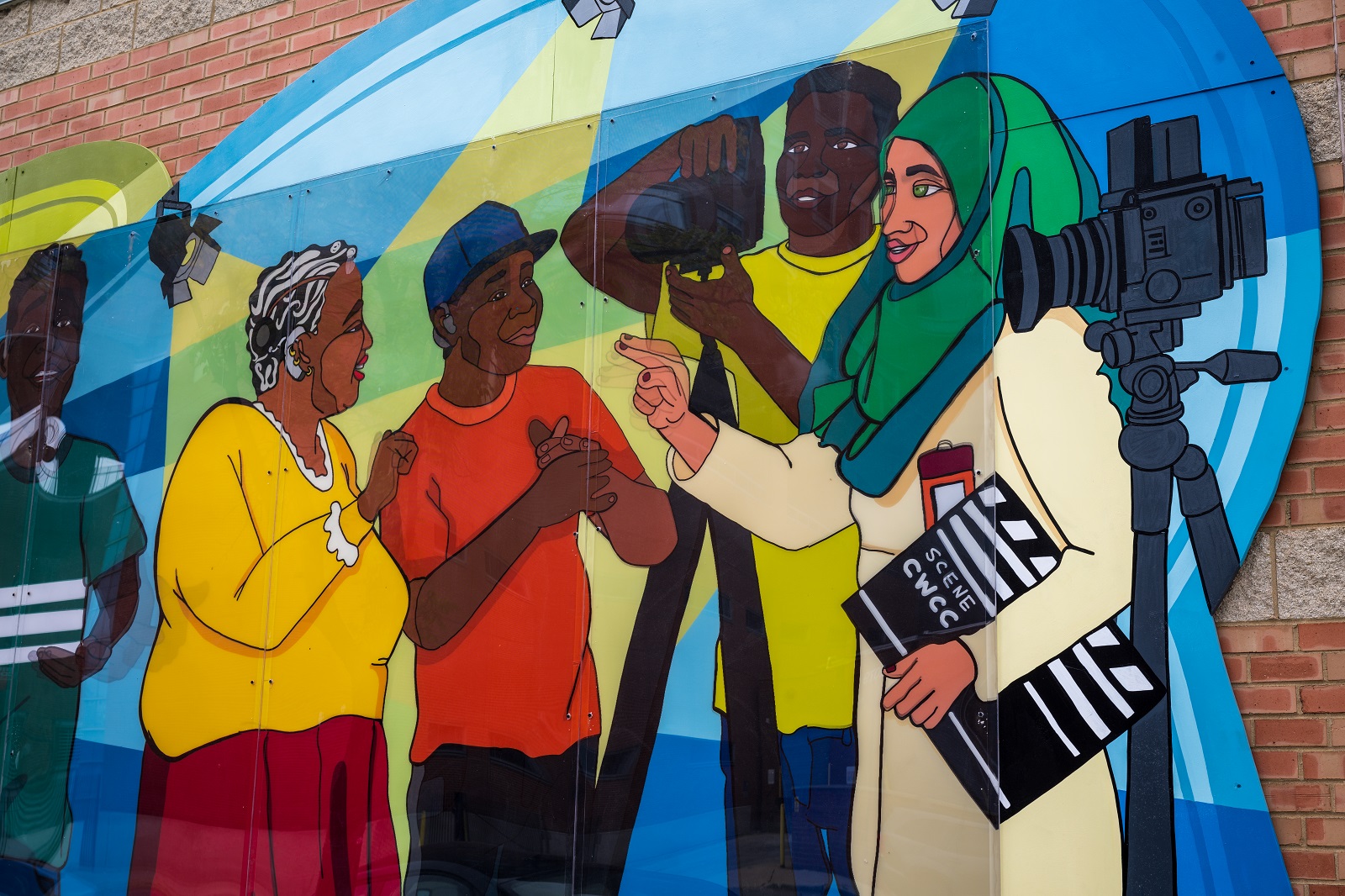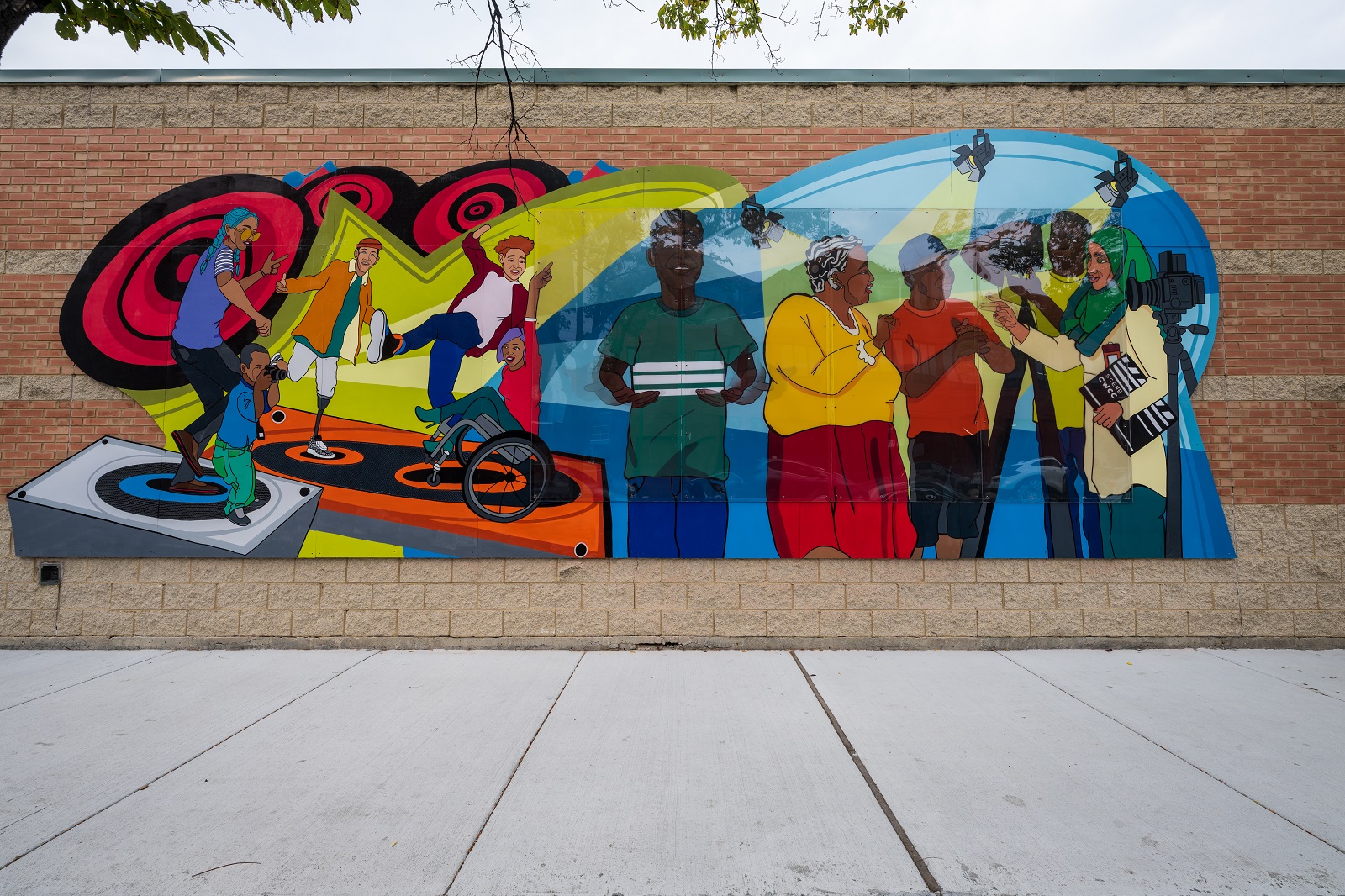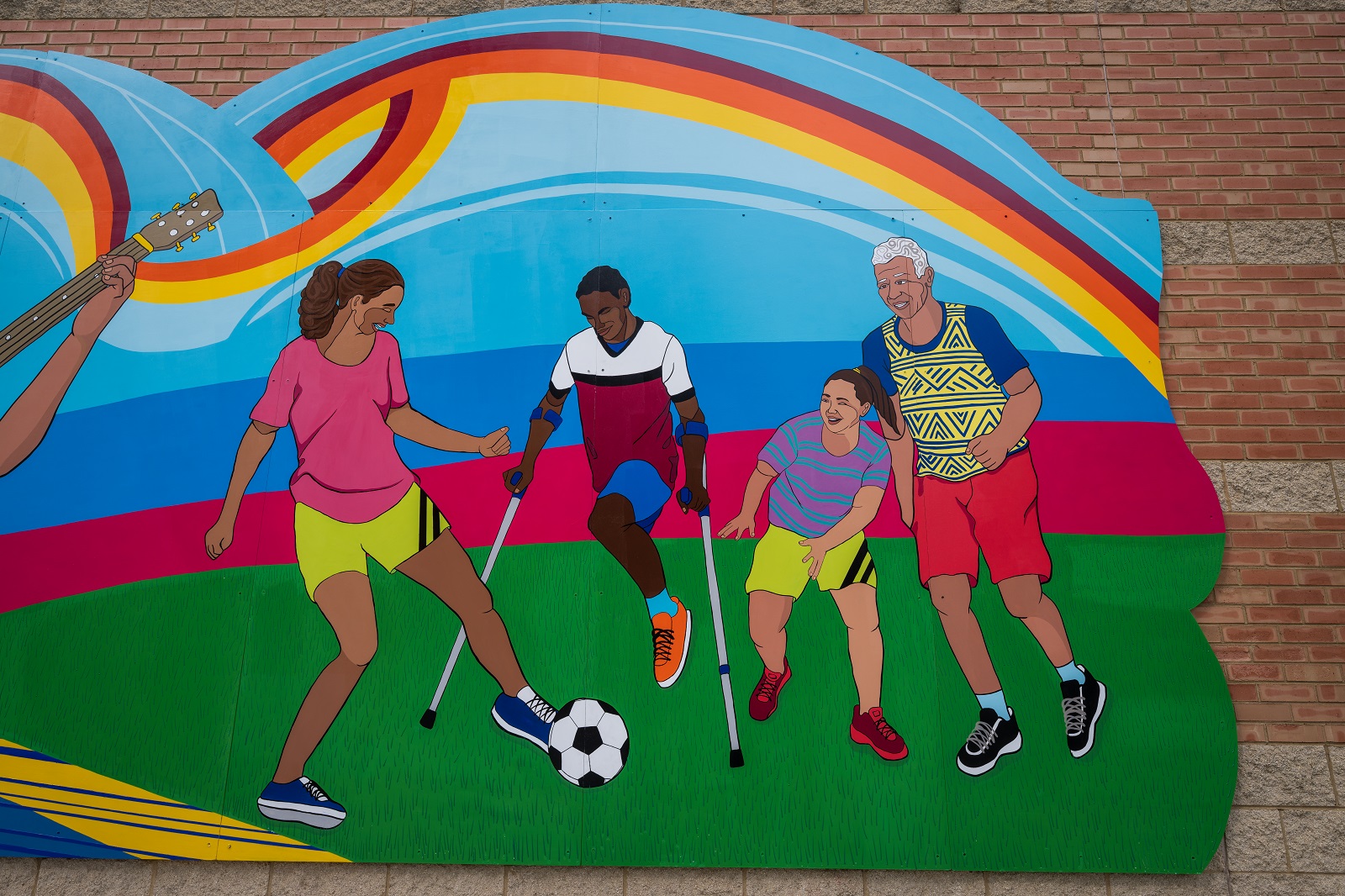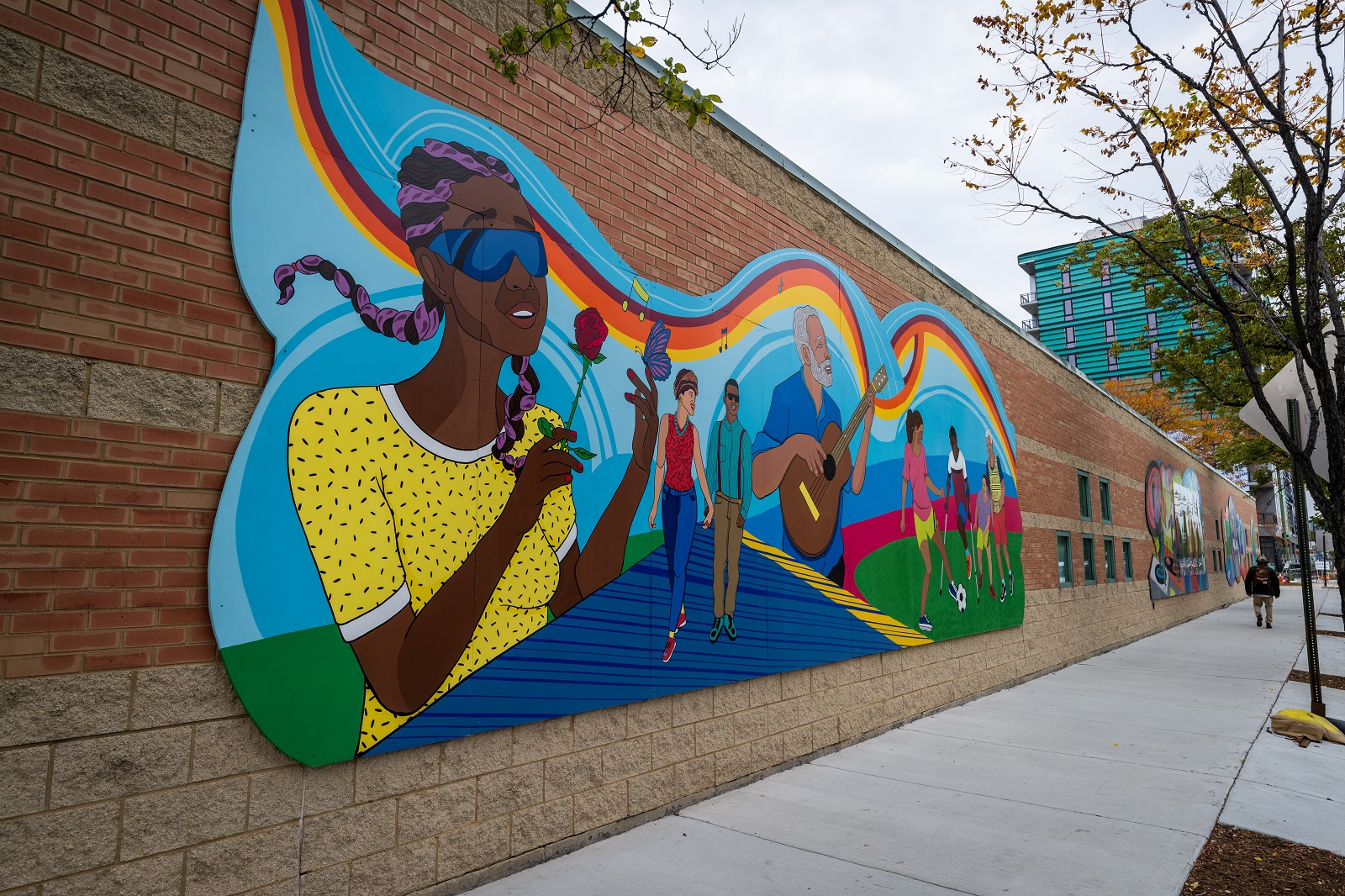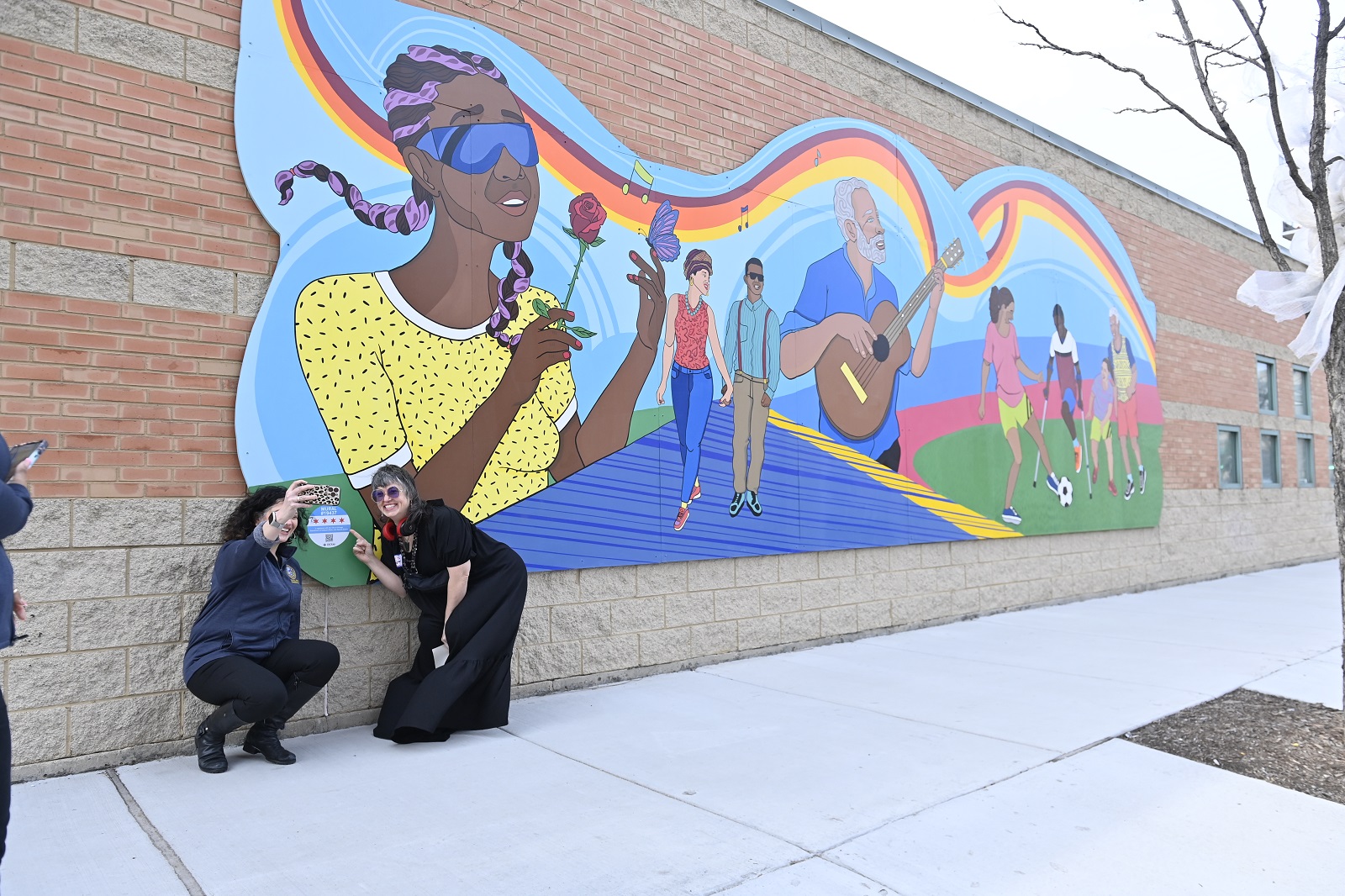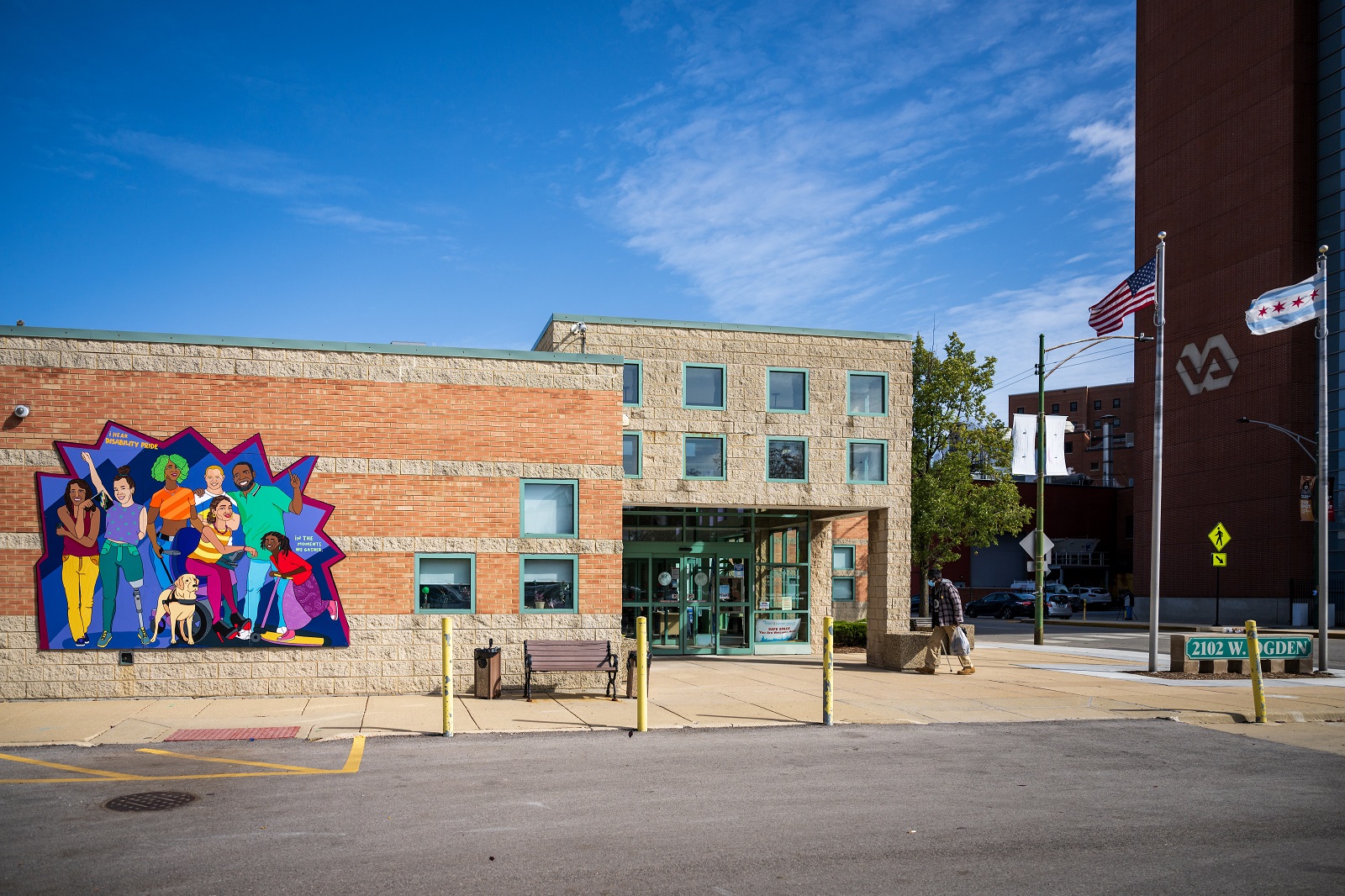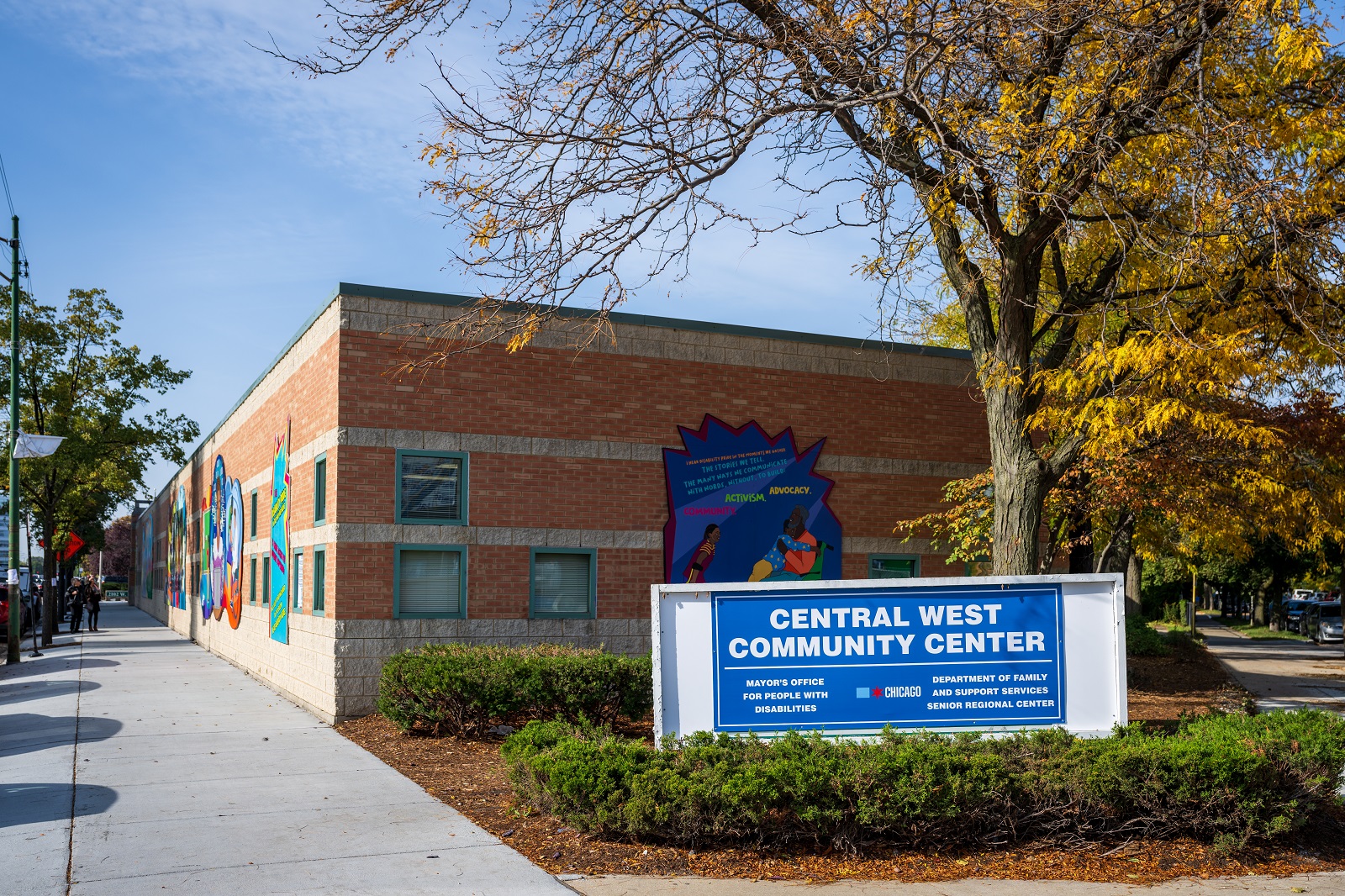The "We Are Proud" Murals




With the opening of the Career Center in 2022, the Mayor's Office for People with Disabilities unveiled a new mural at the Central West Community Center entitled "We Are Proud," created by local and internationally renowned artist Sam Kirk. The mural was a collaborative initiative by MOPD, the Department of Cultural Affairs and Special Events (DCASE), and the Department of Family and Support Services (DFSS). Sam Kirk held several community engagement sessions, and as a result of these sessions, incorporated insights and lived experiences of people with disabilities and senior citizens into the mural. The mural creates a contemporary narrative of what it means to be a person with a disability and/or a senior citizen and establishes a visual identity for the Central West Community Center.
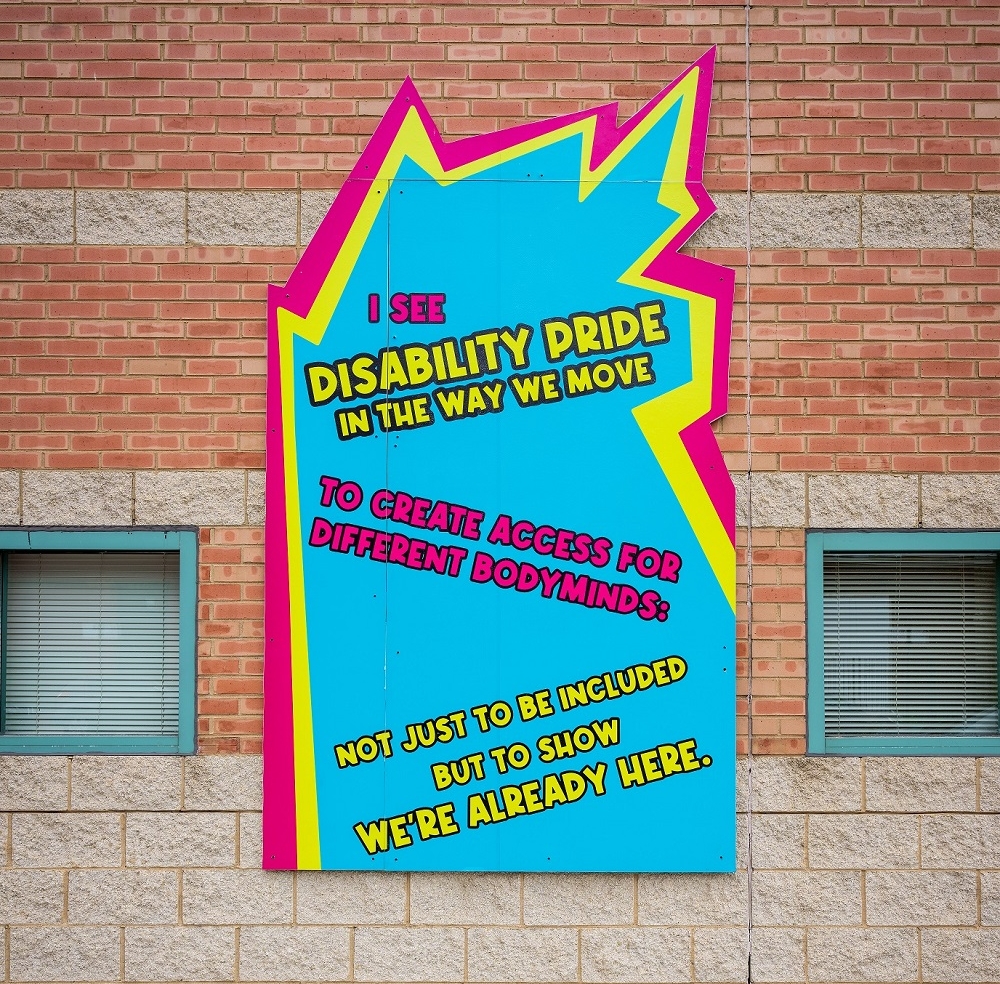
Artist Sam Kirk held several community engagement sessions, and as a result of these sessions, incorporated insights and lived experiences of people with disabilities and senior citizens into the mural. The mural creates a contemporary narrative of what it means to be a person with a disability and/or a senior citizen and establishes a visual identity for the Central West Community Center.
"We Are Proud" also includes poetry written by Lily Diego-Johnson, a poet and social worker with a disability who communicates powerful words about disability identity. Diego-Johnson composed her poem "Disability Pride" especially for this installation.
The mural also includes innovative sensory aspects, including lenticular images, giving the illusion of depth and movement, along with raised elements encouraging tactile interaction. An audio description of the mural is available on YouTube so that all visitors can experience "We Are Proud."
With the opening of the Career Center in 2022, the Mayor's Office for People with Disabilities unveiled a new mural at the Central West Community Center entitled "We Are Proud," created by local and internationally renowned artist Sam Kirk. The mural was a collaborative initiative by MOPD, the Department of Cultural Affairs and Special Events (DCASE), and the Department of Family and Support Services (DFSS). Sam Kirk held several community engagement sessions, and as a result of these sessions, incorporated insights and lived experiences of people with disabilities and senior citizens into the mural. The mural creates a contemporary narrative of what it means to be a person with a disability and/or a senior citizen and establishes a visual identity for the Central West Community Center.




About the Artists
Sam Kirk
Sam Kirk is a Chicago-based multidisciplinary artist who explores culture and identity politics. Her artwork focuses on a variety of intersections which encompass a call to celebrate differences and enact change. Vivid and powerful images of women, members of the LGBTQIA community, and those who have historically been excluded are celebrated in narratives that share the journeys that have made them who they are.
Kirk’s public murals often address social issues, as she intentionally uses the public space to spark dialogue around topics of equality and visibility. Kirk has exhibited extensively at venues including museums and galleries across the US. Her public artwork has been commissioned nationally and internationally to recognize cultural achievements, and acknowledgments of progress, and to share the stories of our communities.
Lily Diego-Johnson
Lily Diego-Johnson is a disabled, cisgender, immigrant woman from Chicago’s Southwest side. She is a licensed social worker in Illinois and currently provides mental health counseling through a disability-affirming lens. She is guided by the vision of Disability Justice in her personal and professional life. She uses her poetry and personal reflections to emphasize the tensions, issues, strengths, and joy in her communities. Her writing is a form of advocacy for social change.

